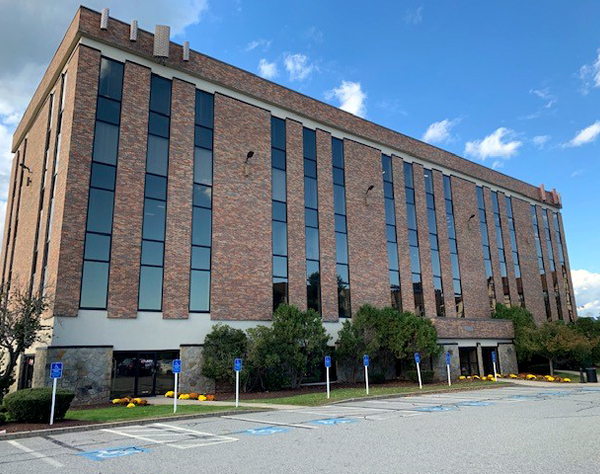




1661 Worcester Road, Suite 204, Framingham, MA 01701 • Phone: 508-232-6267
1661 Worcester Road, Suite 204, Framingham, MA 01701

By Barry S. Rothschild, Esq.
As we all know, every industry has been touched by the COVID-19 pandemic in some way. As civil litigators, we have done our best to move cases forward despite court closures and the limitations of remote work. Even with vaccines coming to market and the light at the end of the tunnel in our sights, the weight of Covid-19 will continue to rest on our shoulders for some time. As we move into 2021, with the court system having been unable to get through thousands of cases over the last 9 months, it’s time to look at how civil litigators can move the courts forward and out of the backlog abyss they are soon to find themselves in. With that, I have six thoughts on what actions litigation attorneys can take to get our courts back on track.
1. Talk It Out. In the new WFH (work from home) world, we tend to rely on email too much. With worrying about kids in the background or distracting our partners trying to do their own jobs, we are afraid to pick up the phone. Instead, we fall back on email as the best method for communication. It’s not. As attorneys, we should be able to intelligently and effectively communicate without having to carefully curate every word.
In law school I recall a guest lecturer in my Civil Procedure class talk for an hour around the phrase, "just pick up the phone." He would talk about a discovery dispute and the rules and relevant case law. At the end of it though, he called opposing counsel and figured it out. This man's entire presentation to 1L law students trying to navigate the ins and outs of the Federal Rules of Civil Procedure was simply to teach us we can always call the other side. While I am a strong believer in the notion that if it is not written, it did not happen, the fact remains that phone calls make the world move faster.
While we are not going to free the courts from every discovery and 12(b)(6) motion by just talking it out, there will be a few instances when it saves some time. Moreover, it will relieve overworked judges, clerks, and staff from these burdens and maybe improve our relationships with the opposing counsel we colloquially refer to as our sisters and brothers.
2. Zoom Zoom… Communication technology is a necessity in the modern lawyer’s toolbox. Like doctors and other professionals, we should always be up on the latest advances available to get the job done. Over the last 35 years word processors, email, and the internet have changed lawyering for the better. These tools make us more agile and allow us to accomplish more in less time. As the pandemic hit, web meetings became the norm. Through Zoom and similar platforms, we have relied on web meetings in ways we thought unimaginable before the pandemic. Depositions are occurring over the internet. Court hearings, after being rescheduled for months, are now routinely done over Zoom and WebEx.
Just like we did with word processors, email and the internet, we have to embrace web meetings and understand how to use the platforms. At a basic level, we need to know how to turn the camera on and off and mute ourselves. Nothing is more frustrating than spending the first 10 minutes of a 15-minute meeting getting someone's microphone activated. We also need to recognize that decorum over internet meetings should be the same as decorum in the courtroom. For one, dress appropriately, head-to-toe. You may have to suddenly stand up. Need I say more? For another, sit in an appropriate setting or use a digital background. Your messy kitchen, car or walking down the street are not appropriate.
3. Settle. Yes, we may have to take less or pay more than the case was worth last year or what it will be worth after a trial two years from now. Sometimes compromise means finding level ground, but sometimes it just means moving on for the sake of moving forward. At times, litigants can be emotionally attached and develop "justice vision." Like tunnel vision, "justice vision" sees the lawsuit as good versus evil rather than an attempt to be made whole. As attorneys our job is to be the level head and cool demeanor while simultaneously being the zealous advocate for our client's best interest.
In the post-Covid-19 world, we should encourage clients to accept what they should not have to otherwise accept. It is a hard truth to say, "I know we’ve never settled for this in the past, but the world is different now." Nevertheless, we have to do it.
4. Change Your Strategy. As litigators, we always think strategically. If I do this, opposing counsel will probably do that. And so on and so on, up until the trial and beyond. Right now we should look to move cases along quickly and get them off the court's docket. Don't get me wrong, the strategic aspect of litigation is part of our job and changing tried and true methods is not easy. Why not take this as an opportunity to try something new? We can look to resolve liability through summary judgment, even if damages are not certain. We can do bench trials where, in the past, we would have chosen a jury trial. The point is, trying a new strategy is going to add another arrow to your quiver and that cannot be a bad thing.
5. ADR. For several years courts have been offering mediation services and other alternative dispute resolution programs to civil litigants at no cost. As the backlog of cases increases in the next few years, I believe so will the availability of these programs. Take advantage of them. Meaningfully participate and come to ADR ready and willing to compromise.
6. Zen. Finally, as Axl Rose said, "all we need is just a little patience." It is going to take time, but the courts will get to your cases. Setting a client’s expectations should include letting her/him know you do not know how long the process will take and any timelines used in the past are no longer applicable. The courts will be under immense pressure in the next few years, playing more catch-up than they are used to playing. There is no need to add to the stress and there is definitely no need to take your or your client's frustration out on court employees. Unfortunately, sometimes we need to sit back, relax, and wait for our turn.
This website is not intended to constitute legal advice or the provision of legal services. By posting or maintaining this website and its contents, Parenteau & O'Hara, P.C. does not intend to solicit legal business from clients located in states or jurisdictions where Parenteau & O'Hara, P.C. or its individual attorneys are not licensed or authorized to practice law. Some links within this website may lead to other websites. Parenteau & O'Hara, P.C. does not necessarily sponsor, endorse or otherwise approve of the materials appearing in such sites.
Practicing In: